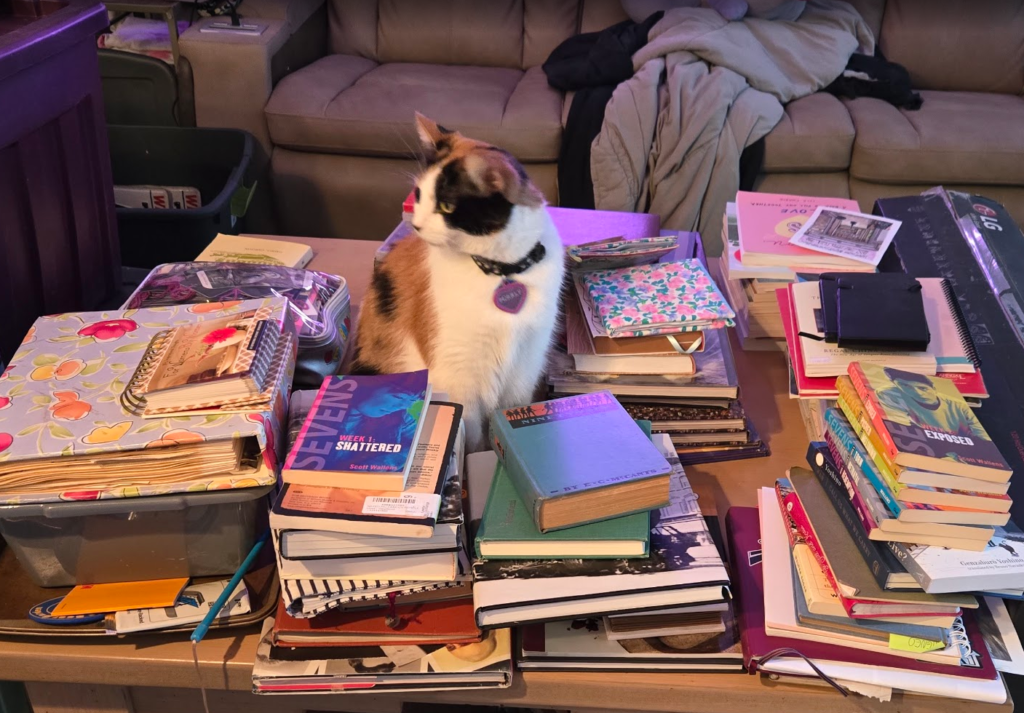Develop your Inner Reader While Gaming? Yes, You Can.
Indie gaming has gifted us another gem: Tiny Bookshop, a cute mystery that’s more than just charming visuals and engaging puzzles. It cleverly weaves in the fundamental aspects of reading comprehension and inference, making it a delightful experience for gamers and a subtle nod to the power of literacy. As a former ESL educator, a casual writer, and a gamer, I have so much have to say about this game. Let’s delve right into how Neoludic Games develops your inner reader in their debut game and why it resonated with me on a deeply personal level.
More Than Just Following Instructions: The Art of Inference in Tiny Bookshop
At its heart, reading isn’t just about decoding words; it’s about understanding the unspoken, connecting the dots, and drawing conclusions based on the information presented. Communication itself, including the skill to read, is the foundation to all social interactions. This is precisely where Tiny Bookshop shines. As you step into the shoes of the protagonist investigating the secrets within the quaint bookshop, you’re constantly prompted to infer information. It’s this very act – piecing together fragments and forming your own understanding – that mirrors the active engagement I’ve had to incorporate in my classroom lessons with my students. It ain’t a easy skill to teach, lemme tell ya’!
Unlike games that explicitly tell you everything, Tiny Bookshop strategically withholds details, encouraging you to:
- Analyze environmental cues: A misplaced book, the color of a shirt, a discard plastic bottle, hot cross buns played on pigeons by clicking them – these subtle visual and auditory details become clues that you must interpret to understand the unfolding narrative. This mirrors how readers analyze textual context to grasp underlying meanings. These mechanics can evoke real life feelings when you recommend a book in the game to someone who maybe didn’t want what they said directly. This leaves the player with two feelings: slight annoyance this NPC didn’t enjoy a book they maybe cherish and curiosity of what they actually wanted. You may also be a third person, like me, that gets the feeling of rage when people do not buy the kids books. Which leads us to the next point.
- Decipher character interactions: Conversations are rarely straightforward. You’ll need to pay close attention to dialogue nuances, tone of voice (even implied through text), and body language (clothing color, willingness to wait) to discern true intentions and hidden knowledge. This mirrors real-world social reading and the interpretation of character motivations in literature.
- Piece together fragmented narratives: The story unfolds through snippets of conversations, scattered notes, and discovered items. Like a detective piecing together a case, you must synthesize these fragments to form a cohesive understanding of the mystery. This resonated deeply with the satisfaction of slowly unraveling a complex plot in a novel, where each revealed piece adds another layer to the overall picture. The feeling of “I can’t put this down” turned into a weekend binge of bookselling. Released on a Friday, thank you Neoludic Games for thinking of what this would do to me and giving me a weekend to get lost in this game, carefree.
The Factual Foundation: Reading Development and Inference
Research in literacy development consistently highlights inference as a critical skill. According to seminal work by researchers like Pearson and Johnson (1978), proficient readers actively construct meaning by going beyond the literal text. They use prior knowledge, contextual clues, and logical reasoning to make inferences, fill in gaps, and understand the author’s implied message.
Tiny Bookshop cleverly gamifies this process. By presenting a world rich in subtle hints and requiring players to actively deduce information, it implicitly exercises these crucial reading comprehension skills. For someone who loves the feeling of being truly immersed in a story, the active role I played in uncovering the discoveries in Tiny Bookshop was incredibly rewarding.
Why This Matters for Engagement and Beyond
The beauty of Tiny Bookshop lies in its ability to make learning feel like play. By embedding inference-based challenges within an engaging mystery, it fosters a more active and rewarding experience. This approach has implications beyond gaming:
- Enhanced Problem-Solving: The inferential skills honed in Tiny Bookshop translate to real-world problem-solving, where analyzing incomplete information and drawing logical conclusions are essential.
- Deeper Comprehension: By actively engaging with the narrative and inferring meaning, players develop a deeper understanding of the story and its characters, mirroring the enhanced comprehension experienced by active readers. This also invests the gamer into the environment more deeply, as they are invested in the success of various quests.
- Increased Engagement with Narrative: The need to actively participate in uncovering the cozy mystery keeps players invested and encourages critical thinking about the information presented. This is ingeniously incorporated into different elements of the game, like the player’s perspective itself. For example, when you use the newspaper, Tiny Bookshop makes you feel like you are standing idly by, reading the daily news as you would out and about in your day.
A Wave of Nostalgia
Beyond the clever mechanics, Tiny Bookshop enveloped me in a wave of nostalgia. The warm lighting, the towering shelves filled with literary treasures, the quiet atmosphere – it all evoked the comforting feeling of spending hours lost in the aisles of my favorite bookshops. It’s an environment that speaks directly to the soul of a reader. Beyond this, I also felt touched personally as someone who has taught English as a second language globally – From Wuhan, China and South Carolina, USA and many places in between. Deeper in between the lines lied memories for me – memories of trying to think of a clever way to teach critical thinking in a language using context clues. In many translations, rarely do meanings in conversational phrases come out clearly. As difficult as it was for my former eight year old students to understand why it was “raining cats and dogs” – in Tiny Bookshop I was placed back in the shoes of my students each time a recommendation that seem straightforward, was not. I also became enveloped in the town’s community as Tiny Bookshop kept me clicking and exploring, eager to uncover the next clue and delve deeper into the unfolding drama. The way the environment itself contributed to the storytelling – a dusty tome hinting at a past secret, a character’s carefully chosen words revealing more than they intended – mirrored the immersive experience of getting lost in a truly well-written book.
As a game itself, it’s damn good too. I remember following Neoludic Games over a year ago on steam when I first tried the demo to Tiny Bookshop (still available here, if interest has been sparked). When the community news and buzz was basically silent, I wrongly assumed this was another indie game DOA. However, now I understand that they were taking time to lock in! The base game is currently priced at $19.99. Compare this to other games I followed from beginning to launch – Lightyear Frontier – where I paid $25 for the game and finished much of the game in its entirety, in only 20 hours. With Tiny Bookshop’s release four days ago, I have already sunk 40 hours of gameplay in – and there is still so much more I want to do! It cannot be understated how this is my pick for Game of the Year 2025. This game is an intentional and thoughtful display of love to the skill of reading.
Final Thoughts: Turn the Page to Tiny Bookshop
Tiny Bookshop isn’t just a charming addition to the indie game scene; it’s a subtle yet effective way to engage with the fundamental skill of inferred reading, a cornerstone of comprehension, in literacy and in social settings with others in their real lives. By weaving this critical element into its gameplay, it offers a unique and rewarding experience that subtly celebrates the power and intricacies of reading. So, grab your virtual magnifying glass, open the doors to Tiny Bookshop, and prepare to turn the page on a captivating mystery that will engage your mind in more ways than one!




